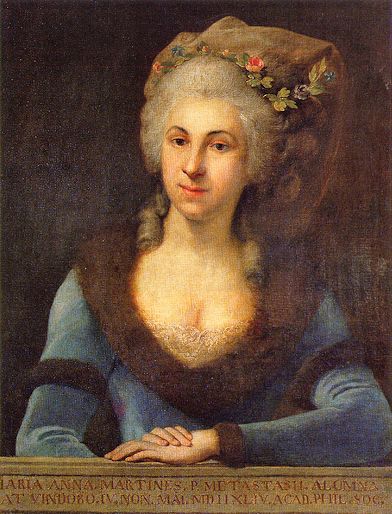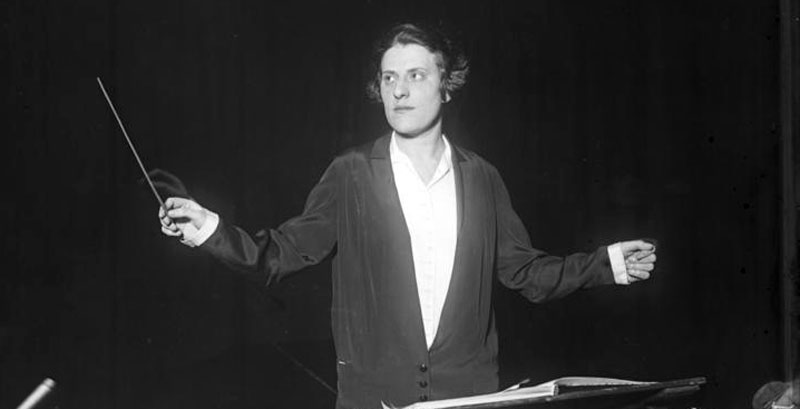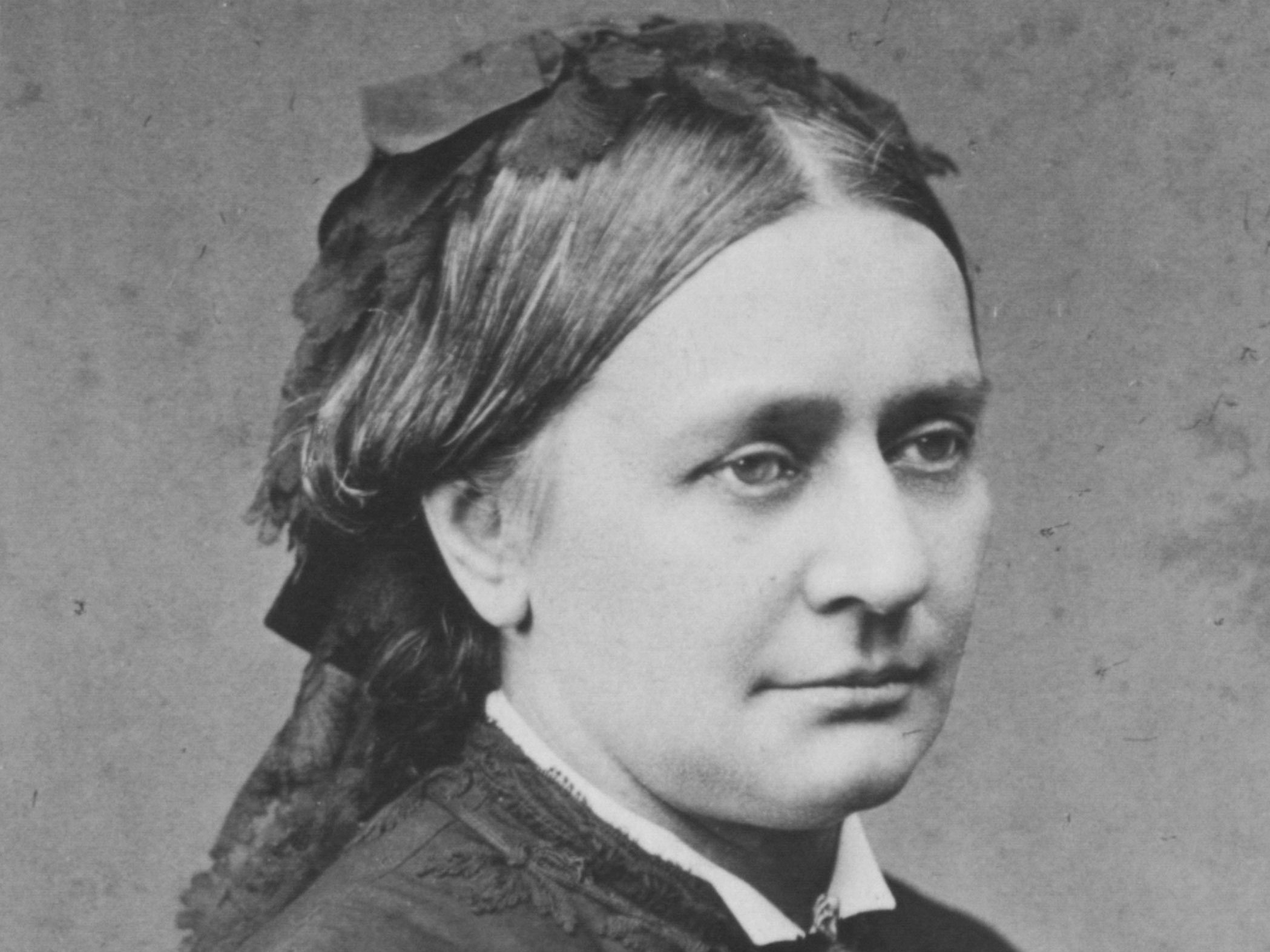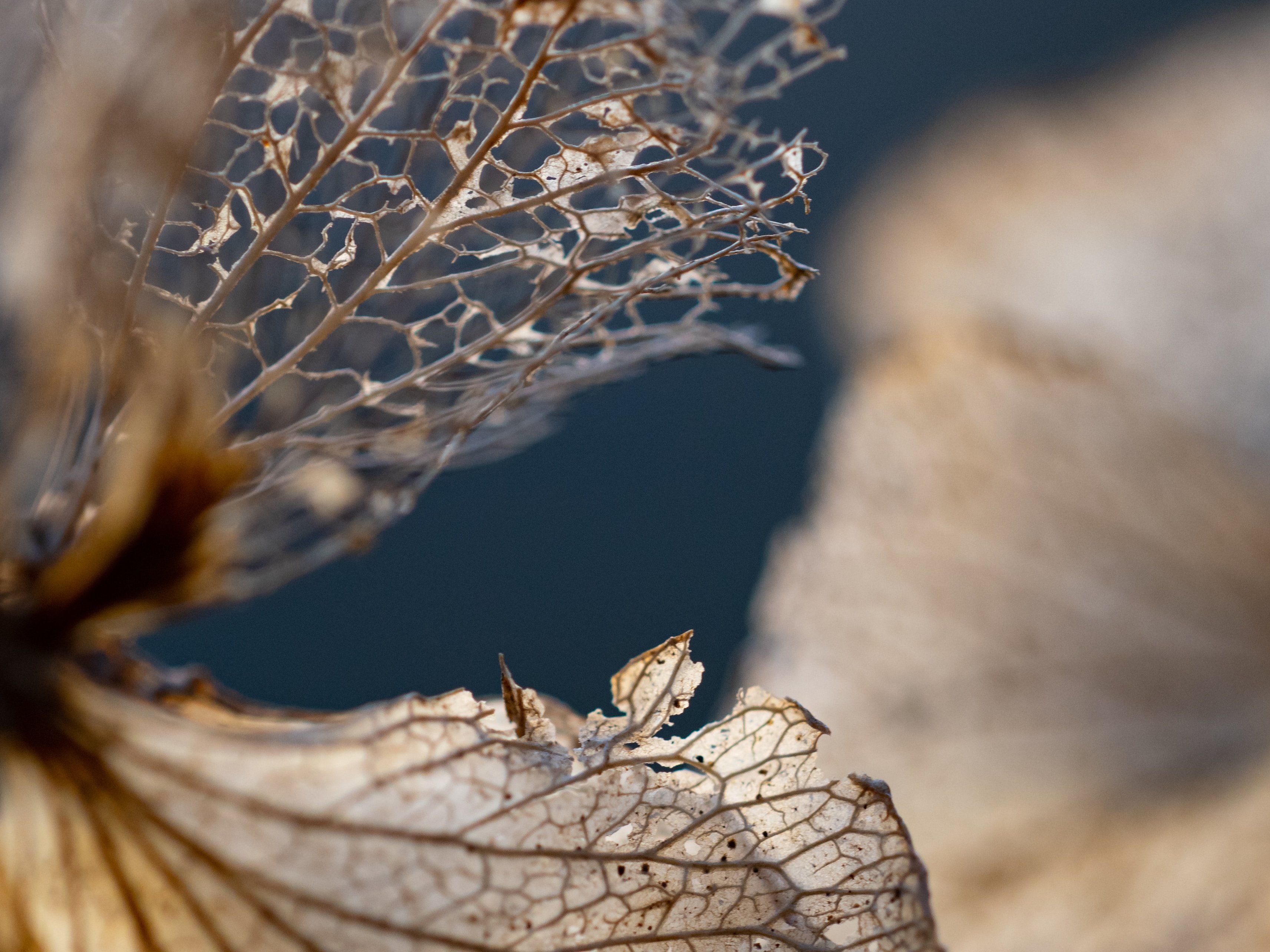
Many people would have difficulty naming three female composers from the last few centuries, especially if they had to do so off the top of their heads, though the names of composers like Hildegard of Bingen, Fanny Hensel and Clara Schumann might spring to mind. Were there no others? Of course there were. But even today their works are rarely edited, published and performed, so they often remain in obscurity, under the radar of public awareness. Phil is presenting an unknown female composer from the eighteenth century.
“Fame is the shadow of passion standing in the light,” the Lebanese-American poet, philosopher and painter Khalil Gibran once wrote. Very few female composers of the last few centuries have had the privilege of being able to walk in this light. Great though their passion for music may have been, the spotlight of music history has rarely shone on them – and if it has, then only briefly. Slowly but surely, however, a number of these female composers have finally begun to receive the attention that they deserve, with concert halls and opera houses presenting more of their previously-unknown works.
This October the Berliner Philharmoniker offers a platform to a fascinating composer who was something of a celebrity in the eighteenth century: Marianna Martines (1744–1812). This new focus on the work of female composers is taking place against the background of a fruitful interaction with research into gender and music, an area of scholarship that has flourished in recent years and involved conferences, publications and studies. In this way the spotlight of history is gradually being refocused – not only in connection with female composers who are active today but also retrospectively, with an eye to earlier centuries, allowing us to expand our horizons in hugely rewarding ways.
A niche market in a male-dominated world
The reality of women’s lives was long characterised by various forms of dependency. Women’s opportunities for self-expression in cultural matters was closely bound up with their role in society – with their wealth and, accordingly, with their education. In the eighteenth century, talented women were in demand above all as prima donnas in the opera houses of Europe, although some were also able to make a name for themselves as instrumentalists. Among them were the organist Anna Maria Bardele in Mannheim, the glass harmonica player Marianne Kirchgessner and the pianist Maria Theresia Paradis.
Women were also active as patrons of the arts, as concert promoters and as the doyennes of musical salons, although as a rule they were able to assume these roles only if they had married into money. Only women from well-to-do and, ideally, aristocratic families were able to enter the world of classical music and leave their mark on that world. This was particularly true of composers. As wives, daughters or sisters, gifted women were dependent on the goodwill and support of the men around them. The fact that the careers of talented sons were generally promoted better than those of their sisters is clear from the Mozart and Mendelssohn families.
Women additionally found their progress as creative artists impeded by the moral preconceptions of a patriarchal society, and for a long time it was simply said that they had no talent as composers. Well-paid posts in classical music as well as public recognition were denied them, with few exceptions. Although a handful of female composers such as Franziska Danzi-Lebrun, Princess Anna Amalie of Prussia, who was the youngest sister of Frederick the Great, Anna Amalia of Saxe-Weimar-Eisenach and Marianna Martines may have been able to dispel this eighteenth-century prejudice, this did little to alter their contemporaries’ distorted perception of female creativity.
Talented and well-connected
Marianna Martines was born in Vienna in 1744 and appears to have been able to pursue her artistic career thanks to a combination of remarkable self-awareness, multiple talents and genuine creativity. She was the daughter of the master of ceremonies with the papal nuncio in Vienna. Her family was in close contact with the local court and was friendly with the court poet Pietro Metastasio, among others. Metastasio recognized Marianna Martines’s talent and became her first patron and teacher, leaving a lasting mark on her. It was because of him that she was later taught by a number of leading lights in Vienna, including Joseph Haydn and Nicola Porpora, with the result that she soon attracted attention as a child prodigy. Thanks to her family’s affinity with music and to Vienna’s status as one of the leading cultural centres of the eighteenth century, she had the best possible start in life. In 1773 she was the first woman to be made an honorary member of the prestigious Accademia Filarmonica of Bologna, joining an illustrious body that included Arcangelo Corelli, the castrato Farinelli, Johann Christian Bach, Karl Ditters von Dittersdorf and Wolfgang Amadeus Mozart.
The English musician and music historian Charles Burney heard her in Vienna in the course of his travels and was fascinated by her multiple talents: “Her performance indeed surpassed all that I had been made to expect. She sung [sic] two arias of her own composition, to words of Metastasio, which she accompanied on the harpsichord, in a very judicious and masterly manner.” She was celebrated in Vienna at this time not only as a composer but also as a virtuoso performer on the harpsichord and as a singer.
Hottest tickets in town
The recitals that she gave at home were attended by Mozart, among others, and were regarded as one of the hottest tickets in town. When Metastasio died, he left his fortune to her and to her siblings, giving her financial security. From an economic point of view, she did not need to marry, allowing her to devote her whole life to music. Apart from many lost works, her surviving legacy includes several Masses and psalm settings, litanies and oratorios, cantatas and motets, together with a number of harpsichord sonatas and concertos and a sinfonia that the Berliner Philharmoniker will be performing in October 2023.
Marianna Martines was a high-profile musician and a distinguished composer during the years that Mozart spent in Vienna. Today her works are a treasure trove that deserves to be exhumed and re-examined. There are now many specialist programmes, bursaries and competitions designed to promote the music of female composers. They all constitute an important and necessary corrective to the musical historiography of recent centuries. But as long as these programmes are necessary and as long as publishers’ and record manufacturers’ catalogues still contain so few – and in some cases no – works by female composers, we will continue to wait for gender equality to become a reality. Until then it remains little more than a heartfelt wish.

From Mary Wurm to Susanna Mälkki
Female Conductors and the Berliner Philharmoniker

Clara Schumann and the Berliner Philharmoniker
Clara Schumann was a composer, a piano teacher and one of the most acclaimed pianists of her day.

Gustav and Alma Mahler
Should she really accept his offer of marriage? At twenty-two, Alma was an extraordinarily beautiful and charismatic woman. Mahler was a social climber from the provinces.